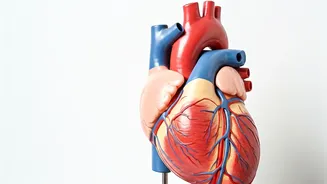Trim the Salt
One of the simplest steps to manage blood pressure involves monitoring your sodium intake. Experts suggest keeping your daily salt consumption below 1,500
mg. This can be achieved by being mindful of processed foods, which often contain high levels of hidden sodium. When cooking at home, use fresh ingredients and flavor your meals with herbs and spices instead of salt. Read food labels carefully and choose low-sodium options when available. Gradually reducing salt intake allows your taste buds to adjust, making healthier eating more enjoyable. By being conscious of your salt intake, you can make a significant impact on your blood pressure levels.
Magic Mineral: Potassium
Potassium plays a vital role in balancing sodium levels within your body, contributing to lower blood pressure. Including potassium-rich foods in your diet is a straightforward way to support your heart health. Excellent sources of potassium include bananas, spinach, sweet potatoes, and beans. These foods not only provide essential potassium but also offer various other nutrients beneficial for overall health. Aim to incorporate these foods into your meals regularly. Remember, maintaining a balanced diet, inclusive of sufficient potassium, is a proactive way to maintain healthy blood pressure levels and support your heart’s well-being. By prioritizing these foods, you're embracing a healthier lifestyle, promoting sustained well-being.
Exercise Regularly!
Physical activity is a key component of a healthy lifestyle and is particularly beneficial for blood pressure management. Aim to incorporate regular exercise into your weekly routine. Exercise, such as brisk walking, jogging, swimming, or cycling, helps to strengthen your cardiovascular system. These activities make your heart more efficient, and thereby reducing the pressure needed to pump blood through your arteries. The American Heart Association recommends at least 150 minutes of moderate-intensity or 75 minutes of vigorous-intensity aerobic activity per week. Find activities you enjoy to stay motivated and make exercise a sustainable part of your life. Regular exercise not only helps lower blood pressure but also contributes to overall fitness, stress reduction, and improved well-being.
Exercise- Do It Right
Ensuring you exercise correctly is important for maximizing its benefits and minimizing risks. Start gradually and increase the intensity and duration of your workouts as your fitness improves. Always warm up before exercise and cool down afterward. Focus on exercises that you find enjoyable, making them more likely to be a long-term habit. It is equally important to listen to your body and rest when needed. If you have any underlying health conditions, consult with your healthcare provider before starting a new exercise program. With the right approach to exercise, you are taking proactive steps toward healthier blood pressure levels and improved overall health. This includes listening to your body, balancing activity with rest, and making sure the exercise aligns with your overall goals and health situation.
Stress Less, Live Better
Chronic stress can significantly impact your blood pressure. Finding ways to manage and reduce stress is crucial. Try incorporating stress-reducing activities into your daily routine. Effective methods include deep breathing exercises, meditation, yoga, or spending time in nature. Engaging in these activities helps calm your nervous system, which in turn can lower blood pressure. It is important to identify your personal stressors and develop strategies to address them. These strategies can include setting boundaries, managing your time efficiently, and seeking social support. Implementing these simple yet effective techniques helps maintain healthy blood pressure levels and enhances your overall quality of life.
If Lifestyle Changes Fail
While lifestyle adjustments are often the first line of defense against high blood pressure, sometimes they may not be enough. If lifestyle changes alone are insufficient to manage your blood pressure, your doctor may prescribe medication. It's essential to follow your doctor’s advice and take your medications as prescribed. Medication can help effectively control blood pressure and reduce the risk of serious complications, like heart disease or stroke. Regular check-ups with your doctor are crucial to monitor your blood pressure and adjust your treatment plan if needed. When lifestyle changes and medication are combined, you improve your ability to keep blood pressure under control, ultimately leading to a healthier heart and overall well-being.













